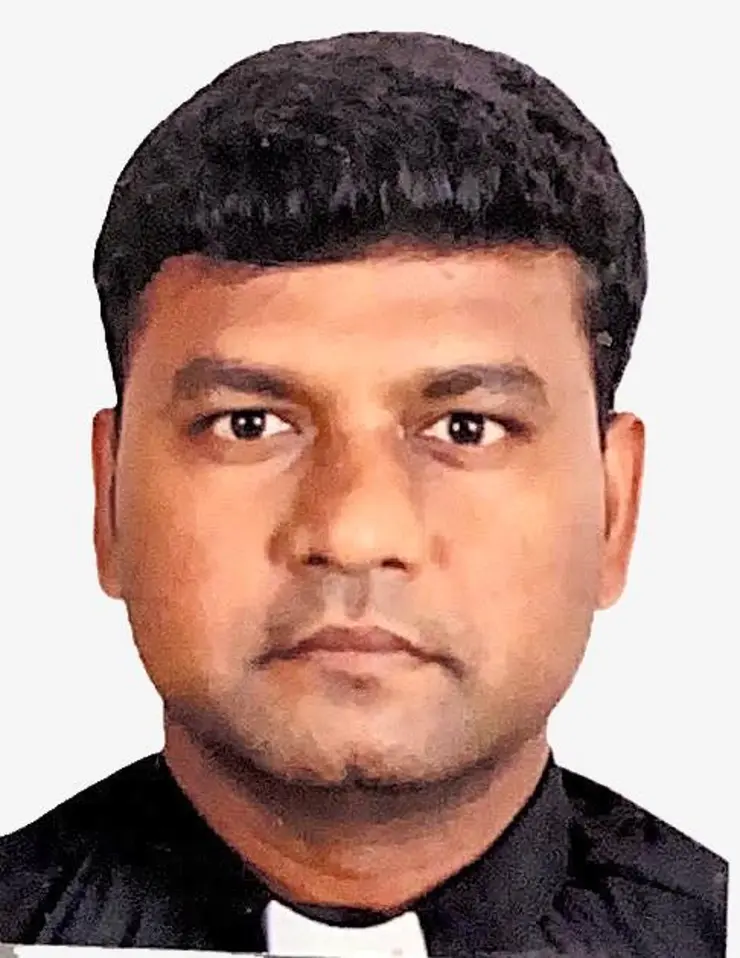
Kulandai Yesu Raja Amaladoss
Promovierender
Zur Person
- 2005-2008: Bachelor of Arts (English Literature), Loyola College, Chennai, India.
- 2009-2011: Bachelor of Philosophy, St. Peter’s Pontifical Institute, Bangalore, India.
- 2012-2016: Bachelor of Theology, St. Peter’s Pontifical Institute, Bangalore, India.
- 2016-2017: Bachelor in Education (B.Ed.), at Kamala B.Ed. college, Villupuram, India.
- 2018-2020: Masters in English Literature, St. Joseph’s College, Thirunavalur, Tamilnadu, India.
- 2020-2022: Licentiate in Theology, Dharmaram Vidya Kshetram, Bangalore, India.
- 2023-till now: Doctoral Student in the theology faculty, Erfurt University, Erfurt, Germany.
Forschungsprojekt
AN INCLUSIVE ANTHROPOLOGICAL CONSCIENTIZATION FOR THE SYNODAL-CENTRIC CHURCH IN INDIA: A RE-READING OF GAUDIUM ET SPES 29.
According to Christian faith we believe that human beings are created in the “image of God” (Genesis 1:27). The Christian message regarding humanity may be presented under the heading of the Pauline expression, the “new person.” With Jesus Christ, a new humanity has appeared in the history of the human race (1 Cor 13). When we consider the development of the doctrine of the Roman Catholic Church over the course of the present century, it becomes clear that the theme of dignity and equality of the human person is the core and fulcrum of the teachings of the Church. Vatican Council II affirms that “there is nothing superior to human beings and they stand above all things,” (Gaudium et Spes 26&29). Christian anthropology taught by the Council explicates that everyone should be respected with human dignity (Gaudium et Spes 27).
When we situate Gaudium et Spes in today’s context it proposes two principles that are central to the world of our time. The first is the inclusivity by treating everyone with dignity and, hence, the responsibility of each Catholic (and of civil society) for protecting and promoting the dignity and inviolable rights of each human person. Secondly, the document vigorously condemns specific violations of human rights and respect in any means which are exclusive in nature and calls for action on the part of Christians and all people of goodwill to oppose them. (See GS, 27 and 51).
When we read Gaudium et Spes in Indian ecclesial and social context of today it accelerates our mind to search for answers for few questions like: how Indian catholic church understands the council’s pronouncement on anthropological elements like equality, dignity and inclusivity in Gaudium et Spes? It is felt that Contemporary culture lacks precision and agreement in defining the human person particularly in Indian situation. Such “anthropological agnosticism” also affects the church, leading to devastating consequences concerning its inner sociality, cultural engagement, and pursuit of justice. This dissertation argues that a significant step forward is to gain a better understanding of inclusive Christian theological anthropology and apply it consistently to Indian ecclesiology for the better mission.
Publikationen
- Journey Together: Challenges for Synodal Church in India, Vidyajyothi Journal of Theological Reflection (VJTR), 86/11 (2022), 831-835.
- Christological Vision of New Humanity, Vidyajyothi Journal of Theological Reflection (VJTR), 89/2 (2025), 121-137.

